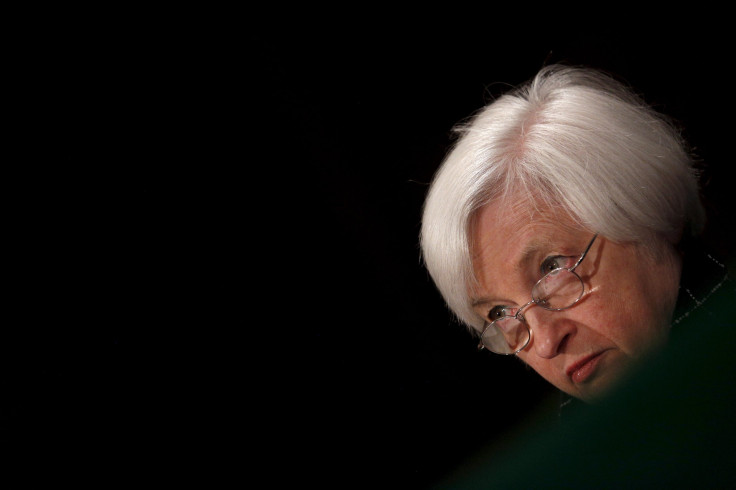Fed's Beige Book Presents Mixed Picture Of Economic Activity So Far In 2016

The Federal Reserve released the latest edition of its Beige Book Wednesday, citing mixed rates of economic activity in U.S. regions in January and February, as uncertainty roils markets around the world and concerns mount about slowing growth.
The February edition of the Beige Book, which is released eight times a year and draws on anecdotal reports from 12 Federal Reserve districts, found that economic activity had expanded in most of those districts -- moderately in Richmond, Virginia, and San Francisco, and modestly in Cleveland, Atlanta, Chicago and Minneapolis -- since the last version of the report was issued, in January. Philadelphia had a "slight "increase in economic activity, and for St. Louis, the growth in economic activity was "mixed." In New York and Dallas it was simply flat, and in Kansas City it declined.
The mixed outlook comes a few weeks ahead of the next Federal Reserve meeting to discuss policy, slated for March 15 and 16. Fed officials are not expected to raise interest rates again then after hiking them slightly, to a range of 0.25 to 0.5 percent, in December. "I feel confident about the fundamentals driving the U.S. economy, the health of U.S. households, and domestic spending," Fed chief Janet Yellen said at the time.
Manufacturing activity remained the same, in part because of weak demand from the energy sector and a strong dollar that hurt exports, the February report noted. The energy sector in turn has continued to contract because of declining coal production and weakening in the oil and gas industry. Consumer spending also grew in the majority of districts, the report found.
Most districts reported an improvement in labor market conditions, and wage growth ranged from steady to strong, the report said. Consumer prices also "held steady" in most districts, it added. The manufacturing sector had mixed results, with flat to moderate growth in Boston, Cleveland, Atlanta, Chicago, St. Louis and San Francisco and slight to moderate declines in New York, Philadelphia, Richmond, Kansas City and Dallas.
© Copyright IBTimes 2025. All rights reserved.





















